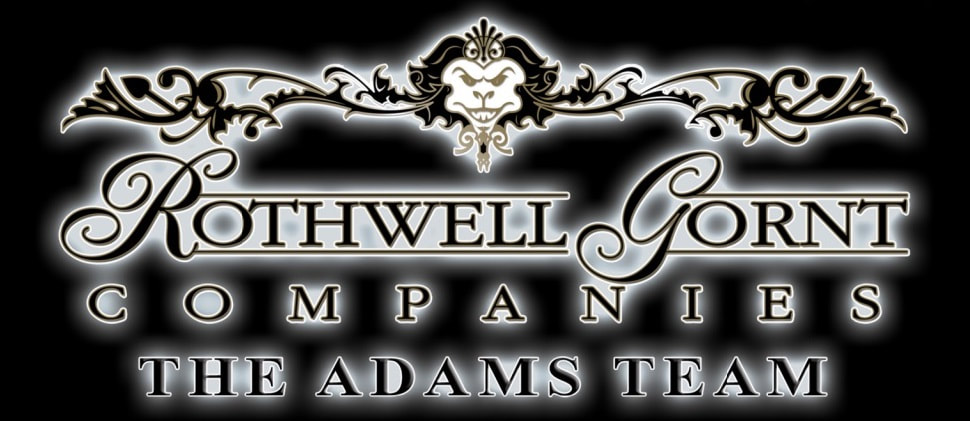|
LVrealestateHELP.com
I am a local listing broker for HUD and I figured I would write about what I know best for my first BiggerPockets BlogPost – buying a HUD home! I see many posts on the BiggerPockets forum about buying HUD homes – and I see a lot of great information from the BP community and and some not so great information as well. I hope to provide the BP community with some great tips on submitting bids on HUD homes and what to watch out for if you get a bid accepted. I know many of you know a lot about HUD, but hopefully you can learn something new that will help your business when buying a HUD home. This article will focus on an investor looking for a HUD home, if you are buying as an owner occupant most of the rules for HUD are very different. HUD Asset Management Companies HUD uses different asset management companies in each state and across the country to sell their homes. Home Telos, Matt Martin, Pemco, BLB, Ofori, Best Assets are some of the asset management companies that sell HUD homes. Each asset management company has slightly different policies regarding HUD home sales, but the budding policies are basically the same for each company. Choosing a Realtor To submit an offer on a HUD home, a buyer must use a Real Estate agent who is registered with HUD. If you are working with a Real Estate agent, ask them if they are registered on Hudhomestore.com. If your agent is not registered with Hudhomestore it means they have not submitted a bid on a HUD home in the last three years. The next question to ask if your agent is not registered with Hudhomestore.com, is if their broker has an NAID number. If their broker does not have an NAID number, it can take six weeks for them to obtain one from HUD. If you are choosing a new agent, these are some great questions to ask to see how savvy the agent is with HUD. If you find an agent who is registered with HUD I would also ask how many HUD deals they have done in the last year. Buying a HUD home is very different than most transactions and I see many experienced agents have problems with their first HUD deal. I am not saying you should ditch an agent you have been working with for years if they are not a HUD expert, but if you are searching for a new agent it is a great way to see how experienced they are. Extra Costs Associated with Buying a HUD Home There are more fees and costs than a normal sale with HUD, especially for an investor. 1. HUD considers investors to be savvy and experienced when buying a home. That means they will keep an investors earnest if the investor backs out. HUD allows an inspection to be done, but if an investor backs out due to inspection issues, HUD will keep the earnest money. There are some circumstances where HUD will refund an investors earnest money. If An investor has their loan denied they can get half of their earnest money back. If the home is damaged or vandalized after a contract is accepted, HUD will allow the buyer to back out and return the buyer’s earnest money. For the most part, as an investor do not depend on getting your earnest money back of you back out of a contract. 2. HUD does not pay for title insurance. Sellers typically pay for title insurance in many states, but HUD does not. You may use HUDs title company or your own, but you will have to pay for title insurance and closing fees. 3. HUD does not turn on utilities for inspections. It is the buyer and their agents responsibility to request permission to turn on the utilities and then turn them on. Any costs associated with turning on the utilities including deposit, transfer fees and usage must be paid by the buyer. During the winter months, HUD will also charge $150 to winterize the home after a buyers inspection if the buyer turns on the water. HUD will pay for past owed balances and liens against a HUD property. 4. If an extension is needed for closing, the buyer must pay HUD for an extension. The cost for the extension is as follows: purchase price is equal to or less than $25,000 you have to pay a $150 extension fee ($10 per day) for 15 days. $25,000.01 to $50,000 is a $225 fee ($15 per day) for 15 days. $50,000.01 and over is a $375 fee ($25 per day) for 15 days. The extension fee is pro-rated so if the full 15 days are my used, HUD will refund money for the unused days. When Can Investors Bid on HUD Houses? HUD changed their entire system three years ago and changed the bid periods for owner occupied and investor buyers. A very important thing for investors to realize is there are different bid periods for FHA insured HUD homes versus FHA uninsured HUD homes. FHA insured homes allow owner occupants to get an FHA loan on a HUD property. Basically if the HUD appraiser thinks a home has less than $5,000 in repairs to go FHA it will be listed as FHA insured. If the HUD appraiser thinks a home needs more than $5,000 in repairs to go FHA, then the home will be listed as FHA uninsurable. FHA insurable homes have a 30 day owner occupied bid period. Investors cannot bid on a HUD home until the 31st day the has been actively on the market. There is no way around this rule as an investor, unless you are willing to risk committing a felony punishable by up to five years in prison and a $250,000 fine. One thing to remember is HUD stops the bid period once a bid is accepted. If a home has a bid accepted on the 11th day, and that contract falls apart, then the property comes back on the market as if it has been for sale for 11 days. If you see a HUD home that has been listed in MLS for 45 days, it may not be eligible for investors yet, if it was under contract for 30 days and then came back on the market. FHA uninsurable homes have a completely different bid period. With FHA uninsured homes there is a 7 day lottery period for government and non-profit agencies to bid. Depending on the asset management company HUD homes may or may not be listed in MLS during the lottery period. After the 7 day lottery period there is a 5 day owner occupant bid period. FHA uninsured homes provide a great opportunity for investors, since they can bid on the 6th day after the owner occupant bid period starts. How to Tell What Bid Period a HUD Home is In The number one question I get from buyers and agents is “can investors bid on this HUD home?” It is actually very easy for any investor or Real Estate agent to see who can bid, if they know where to look. Hudhomestore.com lists every HUD home that is actively for sale. Once HUD accepts a bid they take the home off of Hudhomestore.com. It is very easy to search for HUD homes on their website, just type in an address, street number, county or case number and the property will pull up. Once you get on the property page HUD will list a lot of information and dates. There are two very important items to look at to determine who can bid on a HUD home. - Eligible bidders tells you who can bid on the home. If the home is in the owner occupant period it will say “owner occupants, non-profits and government agencies only”. If the home is in the investor bid period, it will say “all bidders”. - Period deadline tells you how much time is left in the current bid period. This date is the last day of the owner occupant bid period if the home is currently only available t0 owner occupant bidders. The day after this date, is the first day investors can bid on the home. When Buying a HUD Home -Bid as Soon as Possible as an Investor! In most areas of the country prices are rising and it is tougher for investors to find a great deal. HUD usually has very good pricing on their homes and can provide a great source for investors. Because of the great pricing we see on many HUD homes, there is a lot of competition when a HUD home makes it to the investor period. There are a couple tricks investors can use to gain an advantage over other investors. The first trick investors can use, involves bidding on FHA uninsured HUD homes. HUD’s asset management companies will review all bids they receive on an FHA uninsured home on the next business day after the owner occupant bid period expires. The HUD asset management companies review the bids from very early in the morning to early afternoon. HUD allows buyers to submit a bid if the property is still listed on the website and properties are listed on the website until a bid is accepted. There is a short period of time that investors can submit a bid on these homes early in the morning after the owner occupant bid period expires, but before a bid may be accepted by HUD. I see the asset management companies accepting bids as early 6 am in my area. HUD closes the bidding at 12 pm central time, it may be wise for an investor to submit their bid right after 12 pm on that 6th day. The HUD system saves all bids that are submitted by investors or owner occupants when the bids are marked “hold as backup”. Your Real Estate agent will have the option of marking “hold as backup” when they submit a bid. I always suggest buyers mark this option on every bid, as HUD does not consider a property under contract until they receive a signed contract. HUD will not make buyers stick to a bid they mark “hold as backup” if HUD accepts a bid and the buyers no longer want to proceed. If a property comes back on the market, HUD will review backup bids before they put the property back on the market. Assuming an investor is able to submit a bid on a HUD home before HUD accepts an owner occupant bid, HUD will review that investor bid if the original bid cancels and no other owner occupant bids were submitted or deemed acceptable to HUD. This will give that investor a chance to have his bid accepted by HUD, before HUD puts the home back on hudhomestore for investors to bid on. This may seem like an unlikely occurrence to have the owner occupants cancel their contract and no other owner occupant bids deemed acceptable. However, it happens quite often on HUD homes that are FHA uninsurable. 1. There is a very high cancellation rate for owner occupants on uninsurable HUD homes. Owner occupants cannot go FHA, without doing a 203k rehab loan and many conventional loans have requirements just as strict as FHA. Many owner occupants feel they can somehow work out financing on these properties, but end up cancelling because HUD won’t do repairs and the buyers can’t do repairs. 2. When an owner occupant goes through the process of trying to get financing on uninsured HUD homes, they usually take at least a few weeks if not much longer to realize they can’t make it work. Even if there were other owner occupant bids submitted on the home, by the time the first bid cancels many of the buyers who submitted bids have moved on and found different houses. Chances are very good that most of the owner occupant bids will not follow through and will cancel leaving the investor with a chance to buy the property. How Much Less Will HUD Accept HUD gives guidelines for the asset management companies to go by when accepting bids. In my experience HUD allows asset management companies to accept bids with a net price to HUD of about 11% less than asking price. The “net” price is a buyers bid minus commissions to agents and any closing costs paid by HUD. If a buyer bids $100,000 with 3% closing costs paid by HUD then the net price to HUD would be $91,000. $100,000 -$3,000(listing agent commission) -$3,000(selling agent commission) -$3,000(seller paid closing costs). If you are wondering if the agent commissions are negotiable, the selling agent commission is negotiable, but the listing agent’s is not. If an investor is not asking for closing costs then the asset managers can accept a bid of about 5% less than asking price assuming a full 3% commission for the selling agent. HUD will accept lower bids in some cases where homes have been on the market for an extended period of time. If a home has been on the market for 60 days or more an asset manager may ask HUD for special approval on a bid. I am not seeing may HUD homes last over 60 days on the market in my area, but it does happen occasionally. In my experience HUD will not accept “lowball” offers that are 50% of the asking price, but they may go as low as 20% below asking price on certain properties. Submit All Bids on HUD Homes Even if you think your bid is too low for HUD to accept, submit it anyway and have your agent mark “hold as backup”. HUD will keep the bid in the system and if the price is lowered, HUD will review previous bids in their system before they look at new bids. If the home becomes an aged asset and HUD has not received other offers. The asset management company may submit your bid for special approval. If HUD accepts a bid you made months ago and you no longer want the property, have your agent tell HUD you are no longer interested and HUD will cancel the bid. Buying a HUD Home as a Wholesaler I see many questions on the BiggerPockets forum from wholesalers who want to deal with HUD. Here are a few things for wholesalers to think about. - HUD does not allow assignments, a wholesaler will have to buy the home before selling it. - HUD will require a proof of funds letter on cash offers. - You must send in certified funds with your initial contract for earnest money. Inspections on HUD Homes HUD allows investors to inspection HUD homes, but investor will not be able to get their earnest money back because of repairs discovered from the inspection. HUD does an inspection on each home before they list it, but they are not the most in depth inspections. Usually the utilities are not turned on and only a visual inspection is done on the furnace, hot water heater and other systems. HUD does do a pressure test on the plumbing system. HUD will disclose the inspection results in a document called PCR on Hudhomestore under addendums. If the plumbing system does not hold pressure, HUD will not allow the buyer to turn on the water. If an investor is getting conventional financing and the property cannot have the water turned on, make sure you check with your lender to see if that is acceptable. Do Not Try to Cheat The System HUD is run by the government and they take their rules and procedures very seriously. Pretending to be an owner occupant when you are really an investor is illegal and a felony. HUD can fine someone up to $250,000 and send someone to federal prison for violating the owner occupant rule. At the very least HUD will immediately cancel a buyers bid and take their earnest money if they find out a buyer is posing as an owner occupant. If you don’t think you will get caught, there are many investor who would love to bid on HUD homes in the owner occupant period who pay attention to who is buying them and would love to turn in cheaters. HUD does not allow buyers to make any alterations to HUD homes before closing. That includes making any repairs, rekeys, storing personal items, or putting a sign in the yard. HUD also considers it a felony to alter a HUD home before closing. If HUD finds out any repairs have been made they will immediately cancel the contract and take the buyers earnest money. Not only will HUD go after the buyers for violating rules on HUD homes they can take action against the Real Estate agent as well. If HUD thinks an agent is encouraging or allowing a buyer to violate HUD rules, HUD can take away the NAID number from the agents broker. That means no one from that office can sell HUD homes anymore. Conclusion on HUD Homes HUD has a very unique and in depth system that can be very intimidating to buyers and agents who are not familiar with it. However, HUD homes can provide great opportunities for owner occupied and investor buyers. I hope this article has provided a few tips to try out with HUD homes. I have not covered many areas of the HUD process like contracts and closings, but your agent should be able to walk you through those procedures. Please feel free to leave any comments or questions! READ THE ENTIRE ARTICLE HERE: http://www.biggerpockets.com/renewsblog/2013/07/07/buying-a-hud-home/ Best Regards, Las Vegas Real Estate Help © 2017 LVrealestateHELP.com All Rights Reserved.
|
Blog Author:
|




















